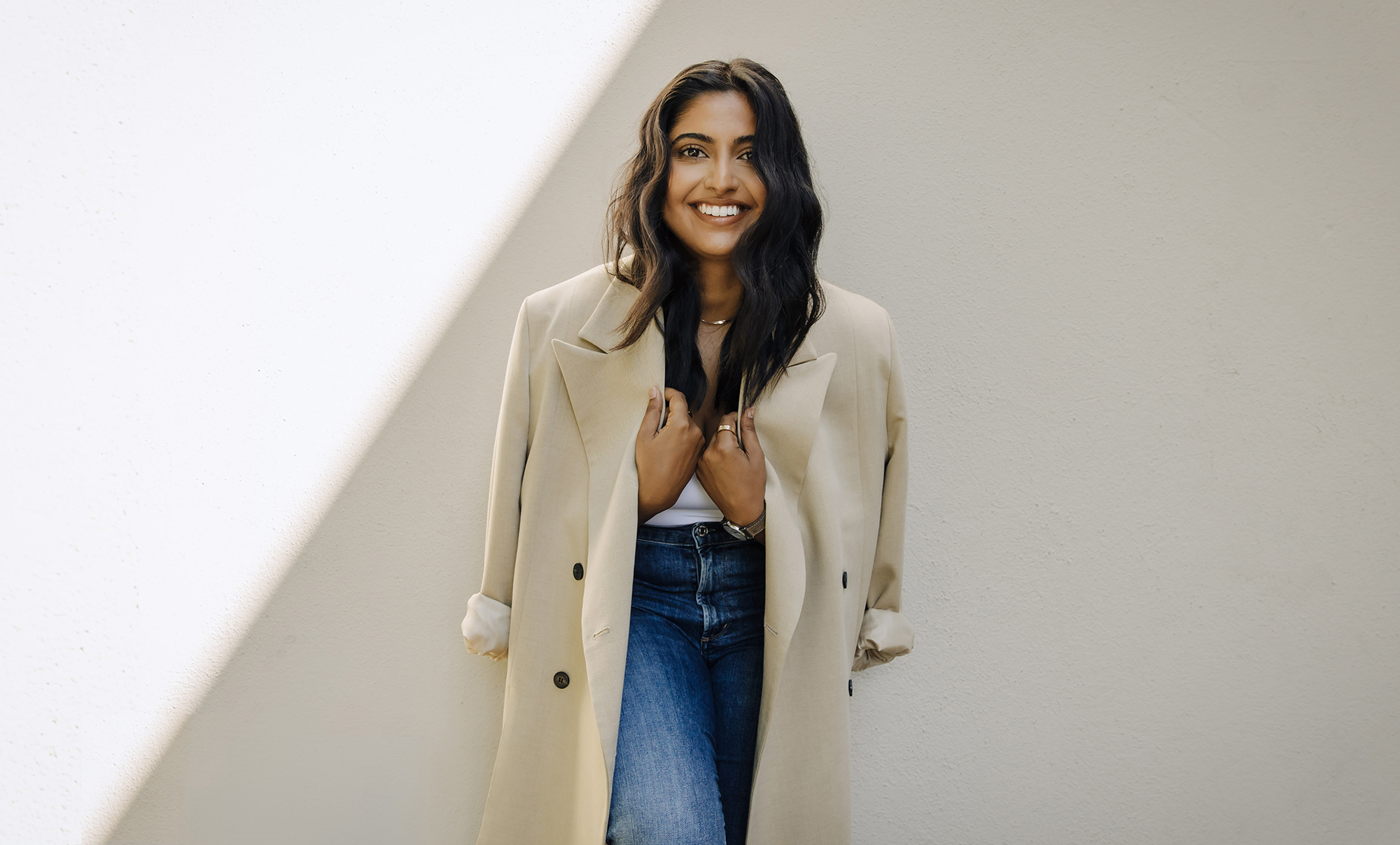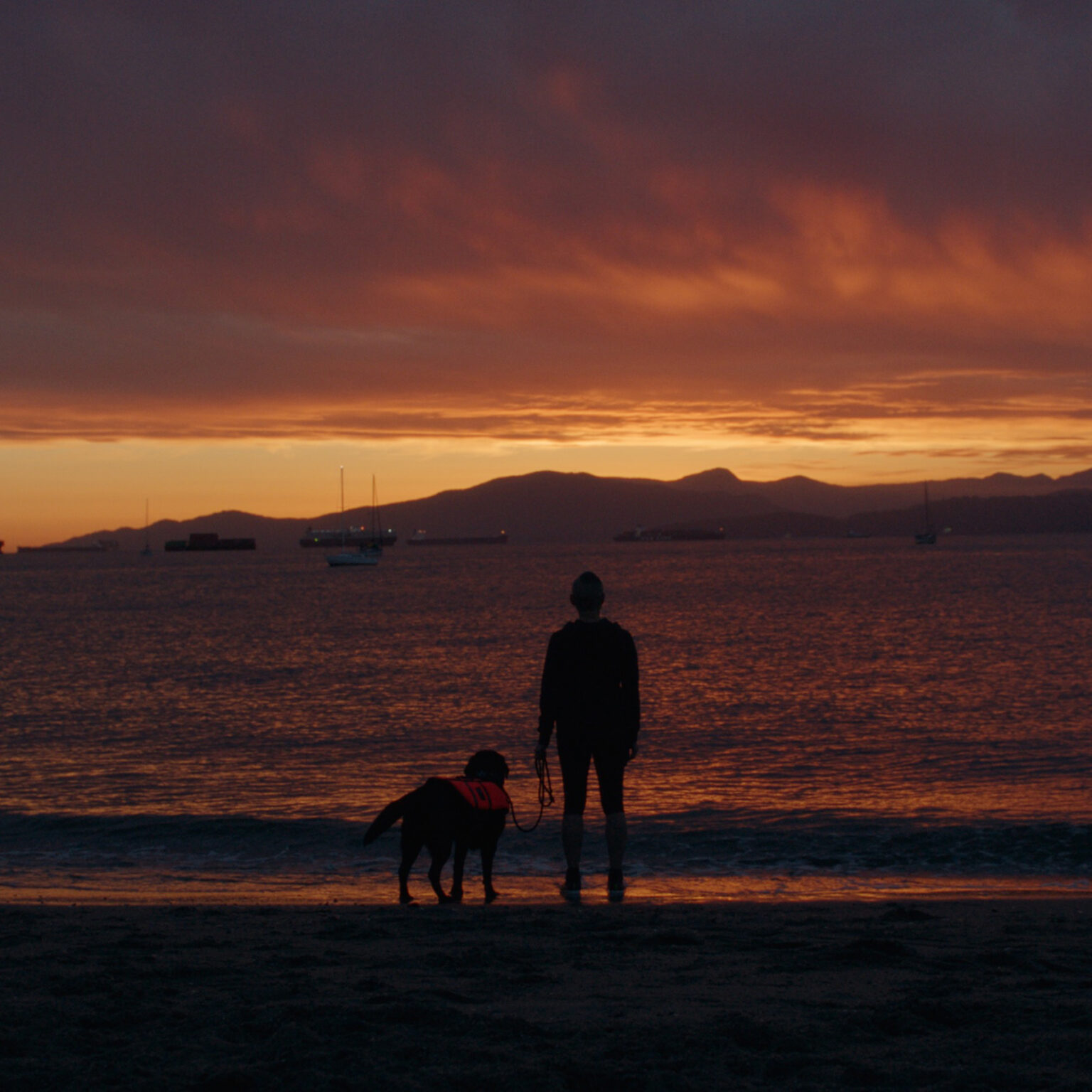Many fans recognize Aliza Vellani as Rani on Netflix’s smash hit Sweet Tooth — but the Vancouver-based actor got her start back when audition self-tapes were mailed in on VHS.
After auditioning for Polly Pocket and Barbie commercials, Vellani landed her first major role at 14, playing the precocious Layla Siddiqui on CBC’s Little Mosque on the Prairie.
“It was probably the best way to start in the industry being on a Canadian show with so many amazing actors in the industry already,” says Vellani.
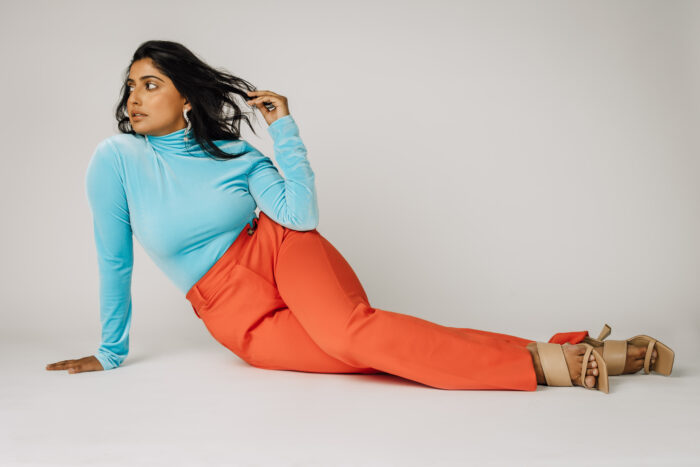
Little Mosque was a major success with six seasons running from 2007 to 2012, but after it wrapped, Vellani went from series regular to searching and auditioning for roles. A decade later, she landed a series regular role again, this time as Sweet Tooth’s Rani Singh, the kindhearted wife of Dr. Aditya Singh (Adeel Akhtar) and the reason he is so driven to find a cure for “the sick ” — and Vellani isn’t taking any of it for granted.
“That’s what creates such a huge sense of gratitude for actors when you get to work on an amazing show [like Sweet Tooth] and you get to work with such incredible creatives — you understand how rare it is,” says Vellani.
In advance of Season 2, now streaming on Netflix and currently has a 93% rating on Rotten Tomatoes, RepresentASIAN Project spoke with Vellani about her journey from a Little Mosque to the post-apocalyptic adventure of Sweet Tooth, and what happened in between.
You started out on Little Mosque on the Prairie, which was a groundbreaking show for Muslim representation on TV. What did it feel like to be on that set?
And at the time, I just couldn’t believe that it was a show about Muslims. It was a show written by a Muslim woman of colour, Zarqa Nawaz, and that in itself was rare. So the fact that CBC had decided to pick up the whole season, you could see the excitement from everyone. So at that time, I didn’t quite understand how big of a deal this was. But it became more and more clear to me when season one first came out because it was still very controversial at the time. It was a series that was trying to combat Islamophobia, using comedy, and creating so many characters in a way that showed the challenges that we all face in our society.
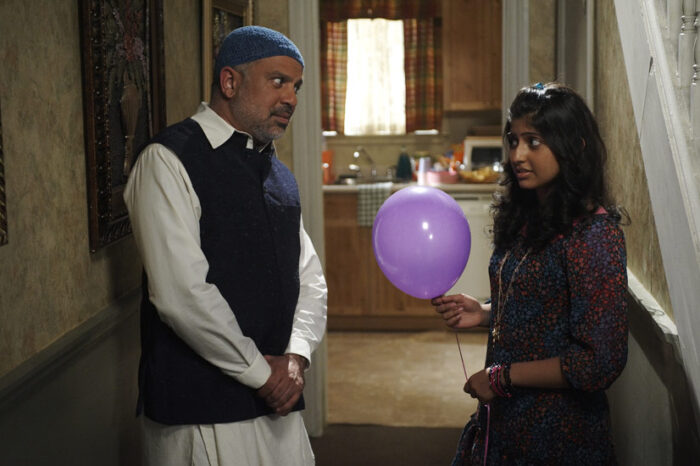
Did you relate to your character, Layla Siddiqui?
What I loved about Layla was she was a character that was struggling to find a balance in staying true to her culture, her faith, her family practice, while also finding her own independent voice as a child of immigrants and what that meant. There were some aspects that she leaned into and other aspects where she resisted and she wanted to be her own person. For me as a teenager, that was really important to play.
Tell me about the time between Little Mosque, which ended in 2012, and Sweet Tooth.
Working on Little Mosque I was very sheltered and spoiled—thinking that that’s what the world of acting was. In those years between [Little Mosque and Sweet Tooth] I realized this was actually a journey that we all had to go on together, and we had to fight for that visibility—it really showed me how much Zarqa Nawaz fought for that. And so really, it was a lot of patience and a lot of auditions, and Sweet Tooth came up a little bit out of nowhere… So it’s been an amazing journey. But it’s definitely been a long journey. I would say a lot of actresses, and especially Indian actresses would probably feel the same way in this industry: you’re fighting for that visibility, you’re fighting to play the roles that you want to play, and when you do, it’s very surreal.
“I would say a lot of actresses, and especially Indian actresses would probably feel the same way in this industry: you’re fighting for that visibility, you’re fighting to play the roles that you want to play, and when you do, it’s very surreal.”
In the gap between Little Mosque and Sweet Tooth, was there ever a point where you considered leaving to pursue a different career path?
I feel like I do this every day. I feel like I have this conversation with myself every day of going: Is this really it? Maybe this is the last thing I’ll ever do. I’ve been having this conversation even after this season. Because you never know you really never know. But deep down, I know that I’m always going to come up with the same answer, which is that I am a born storyteller, and this is the world I want to be in.
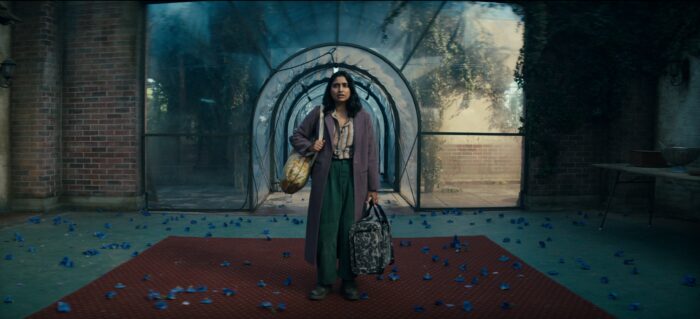
I love that those questions don’t come from a place of internal doubt, but because there aren’t enough opportunities. That seems like a healthy way to shift the narrative. It’s not on you, it’s on the industry.
Something that shocked me about Sweet Tooth was that I felt so safe and at home as a woman of colour to voice my feelings in the role and feel like I could talk about Rani and my experience with her as a Brown woman. And that was encouraged. And I would say that, even five years ago, I would feel uncomfortable being in that space and voicing those concerns.
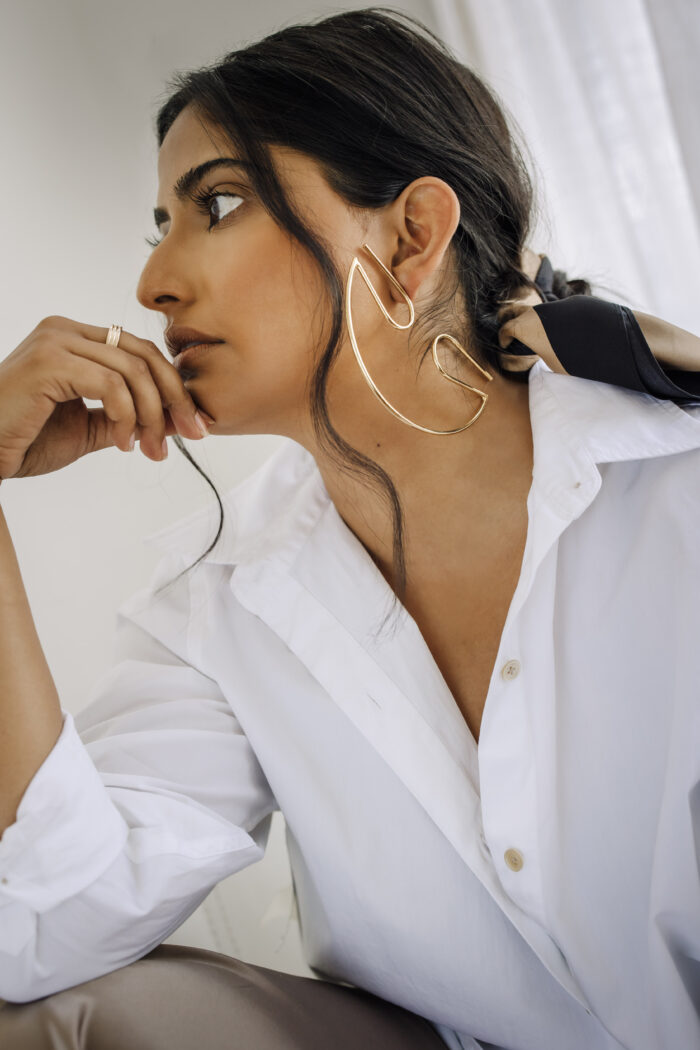
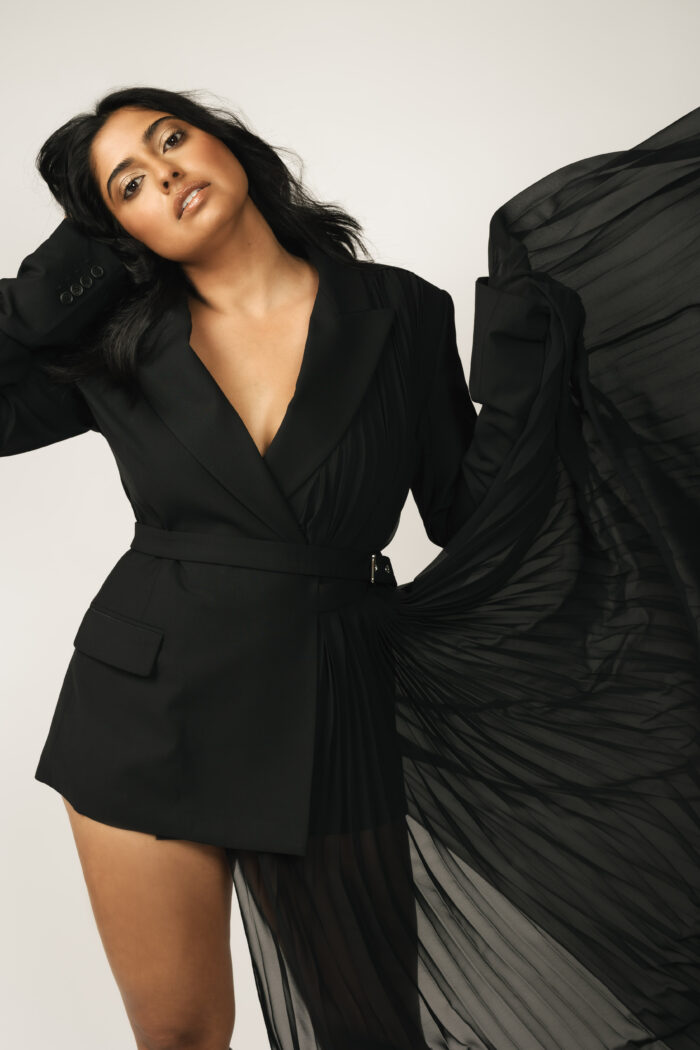
Can you give me an example of what that looked like?
Without giving too much away, there was something in Rani’s journey that I had been pondering over. While we were on set, I approached the producer and said, ‘Hey, I have been thinking about this scene. And I wanted to talk about it and see if this was an idea we could incorporate.’ And then the next day, I get an email saying they’ve organized an hour to chat with one of the writers and the consultant we had for these characters. And it was us talking about Rani and talking about her journey this season. And then even a week after that, we had new drafts come in, and you saw that conversation and how it was so beautifully and eloquently put in the writing. So that to me was shocking, because it wasn’t imposter syndrome, it was really a wow, this is a collaborative process. This is a story that we’re all a part of telling together.
I always wonder about the added responsibility that we place on actors of colour to accurately portray and represent us. How do you approach that, especially with characters like Rani where there are elements of culture and religion weaved into her story?
We have an incredible opportunity to collaborate and show that South Asian writers aren’t limited to only telling South Asian stories and vice versa. And with Sweet Tooth, we were able to say, hey, you know, this aspect of this character, you will know, this aspect of this character, how can we bring these things together to create a complex woman of colour that can feel empowering on screen? So that’s the responsibility I think that we all kind of carry as women of colour: we want to have those conversations, we’re always wanting to find new ways to collaborate and encourage people to listen to our stories, and incorporate them into new scripts and new ideas.
“That’s the responsibility I think that we all kind of carry as women of colour: we want to have those conversations, we’re always wanting to find new ways to collaborate and encourage people to listen to our stories, and incorporate them into new scripts and new ideas.”
You’ve talked about helping to increase representation in the industry through education and accessibility, specifically working with South Asian creatives in Vancouver. Full disclosure for our readers, you actually starred in a short film (All Kinds of Weather) by my Bua (aunt) Ragini Kapil, who is an aspiring filmmaker. As your platform grows, are you shifting or increasing your efforts in this community?
What’s been so great is there’s been such a huge support in the actors union here in B.C., that we’ve really been able to look at diversity and how it’s affected so many Canadians and actors in the industry. And so looking at that, we’re also able to see how it impacts scene work. Even from my experience going into classrooms, I never had the experience of playing a South Asian woman in a scene where the scene was written for a South Asian woman. And that is something that I want to encourage change.
How has your expectation or your hope for representation changed from Little Mosque to now?
I have a more positive outlook on where we can see diversity going. But really, that sense of hope and that drive has always remained consistent—that we will always need to push more, we will always need to tell more stories and find more stories. Because there are so many people and groups in the South Asian community that we have not even touched yet.
This interview has been edited and condensed for clarity.
Like this post? Follow The RepresentASIAN Project on Instagram, TikTok and YouTube to keep updated on the latest content.







